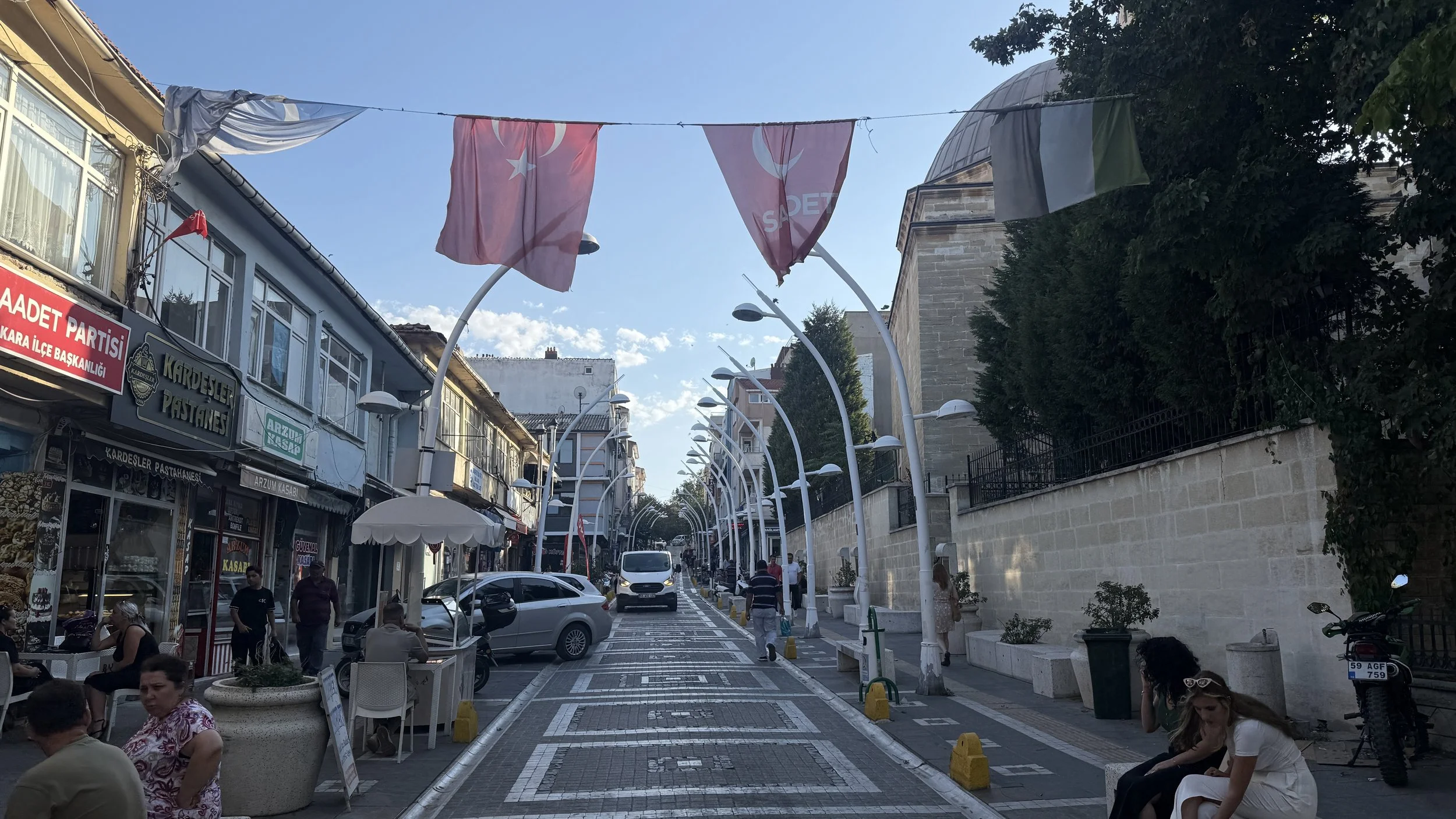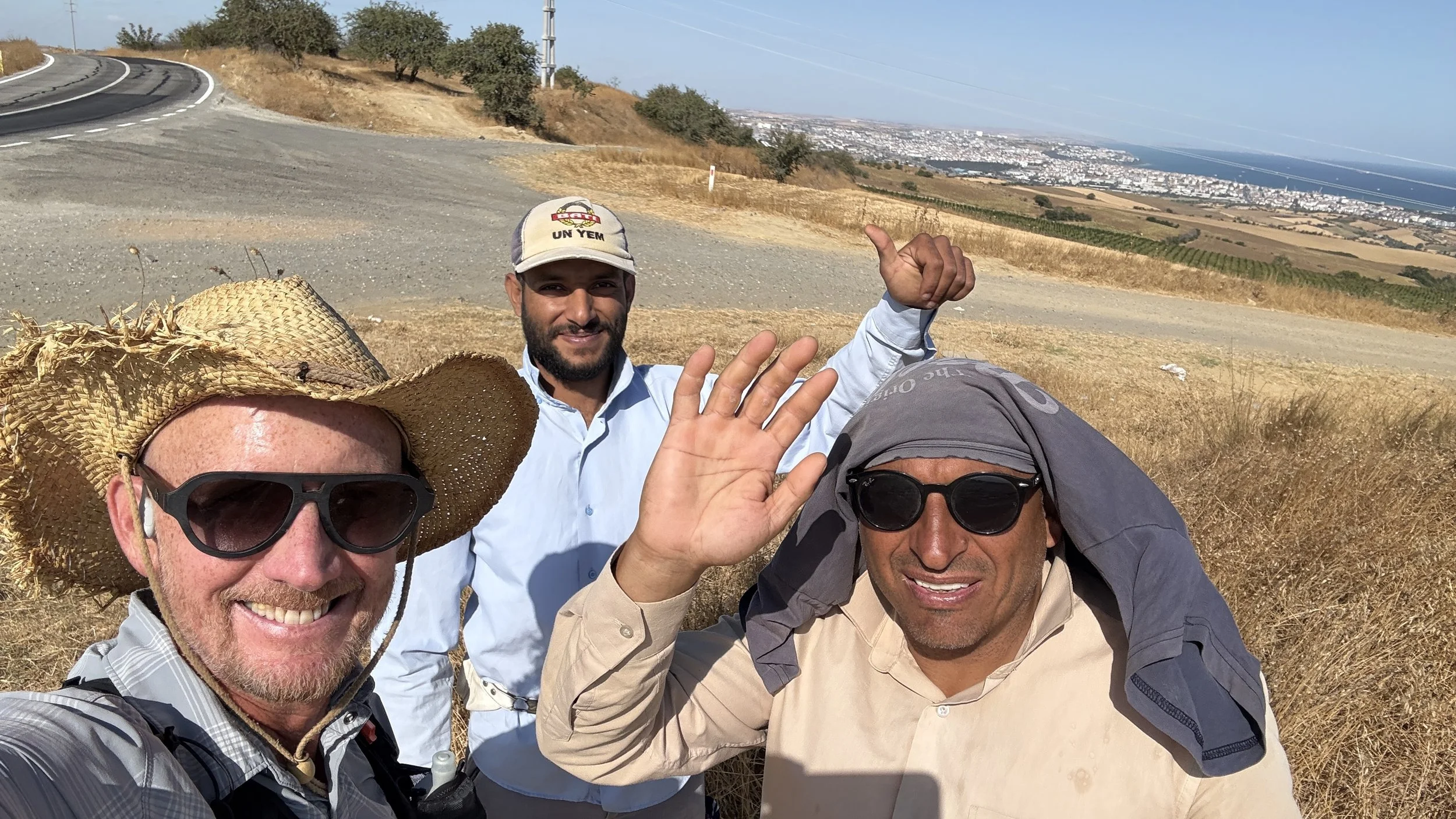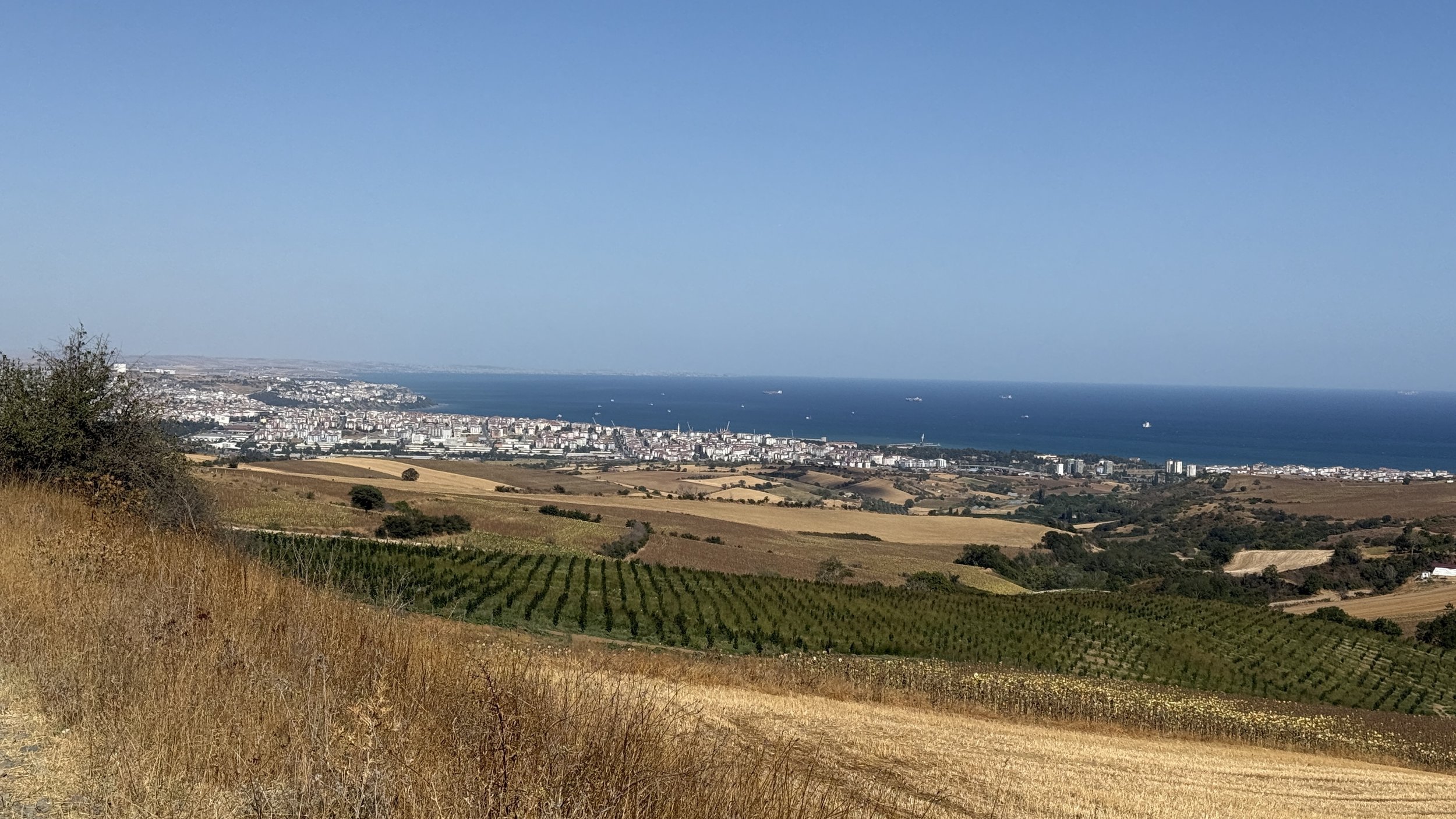Day 96 - August 16th: Final Boss
Malkara to Tekirdağ: 36.3 miles / 2,766 total
I checked into the hotel at 4:30 PM and made quick work of my now minimal post-run routine. I made a few phone calls as this was the first hotel in a few days that had Wi-Fi. Then I went out to look for food. It was tricky—numerous small mom-and-pop restaurants, none with English, each with outdoor communal tables where locals smoked, ate, and drank tea. I circled the area and settled on one where kebabs were being served, my go-to in Turkey.
A young man worked the grill. I typed “salad” into my translator and he nodded. When he asked how many kebabs I wanted, I started with five. They arrived with salad, a roasted hot pepper, and sauce. Delicious. I ordered another five. Almost full, I signaled three, but he brought five anyway, smiling the whole time. Fifteen kebabs and two iced teas—$8, and a happy cook.
I’ve learned that when asked where you’re from, “United States” doesn’t register. “America,” though, Turks understand.
The hotel was simple and across from a mosque. Inside the room, I noticed clean ashtrays—one on the bed table, another on the refrigerator. No surprise, then, that when I woke at 2 AM, the smell of smoke felt baked into the blankets, walls, and air conditioner. Maybe it was that, or the nerves about the upcoming day, or the lack of beer, but I never fell back asleep before the 5:12 AM call to prayer just outside my window.
I hit the road after a simple breakfast, flat from step one. No energy, tired, forcing myself to push the mental dial from half empty to half full.
Malkara sits on a ridge line that’s been settled since antiquity. The Byzantines called it Malgarion, and during Ottoman times it became a strategic stop on the road between Adrianople (Edirne) and Constantinople (Istanbul). The town was devastated during the Balkan Wars of 1912 but rebuilt, and today its rolling farmland still produces the sunflower oil and grains that have defined the region for centuries.
It was all downhill leaving town, and for the first time in Turkey I found myself on quiet farm roads through sunflower and hay fields for about 15 km before rejoining the E84—the modern highway that shadows the ancient military routes built by the Romans to link Thrace to Constantinople.
The headwinds were brutal again. Even on descents I couldn’t run freely, and when the gusts stopped it felt like falling forward. After four days of this, I’m hoping tomorrow’s forecast is right and the winds will ease.
Low on energy, I stopped at the first café I saw and had a Turkish coffee with a grilled cheese (tost). It gave me just enough spark to grind out the next 35 km on the highway—head down, get-it-done kilometers.
At 35 km I began the day’s final serious climb. My son Gabe, who was about to start the Headlands 50K tomorrow, called to check in. After hearing about my wind, distance, and climbs, he said: “Dad, just think of it as the final boss in a video game.” It made sense.
At 46 km I turned off the highway back onto farm lanes that soon gave way to an ancient stoned roadway. These upland tracks were once part of Ottoman and possibly Roman routes connecting inland Thrace to the Marmara coast. Cresting the ridge, I saw Tekirdağ spread out below on the sea. Three locals stood at the top admiring the view. We exchanged smiles, names, handshakes, and photos before they cheered me on for the descent.
I reached my hotel at 6 PM, just shy of 60 km. The boss had been defeated. Now, two more ~50 km stages before the grand finale.
Tekirdağ itself has long been one of Thrace’s great port towns. Known as Rhaidestos in Byzantine times, it grew as a key supply hub for Constantinople and later as an Ottoman naval and grain base. In the 18th century, Hungarian patriot Francis II Rákóczi lived here in exile—his house still stands as a museum. The city is also famous for its local köfte - my kabobs, and for vineyards that have produced well-regarded wine.
Time to find grub and hopefully make up for lost sleep.
Thanks for following along and the support.
Cheers,
David.







